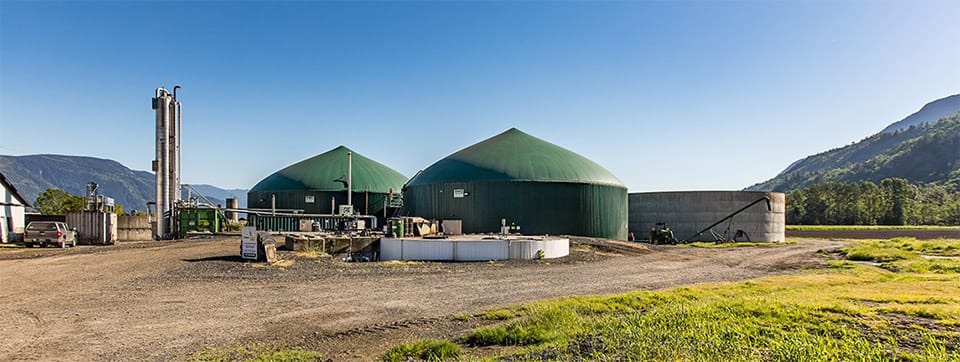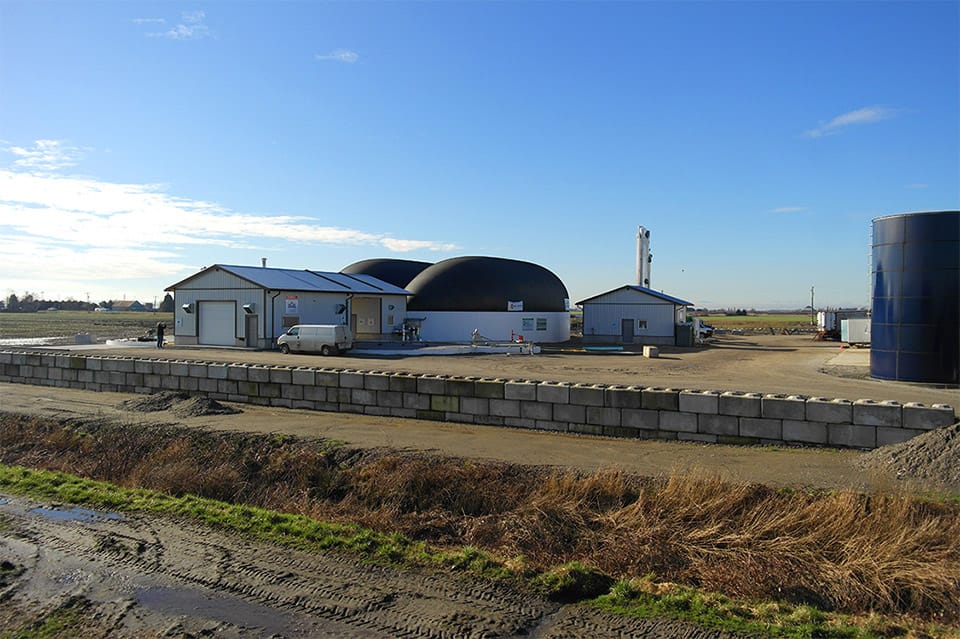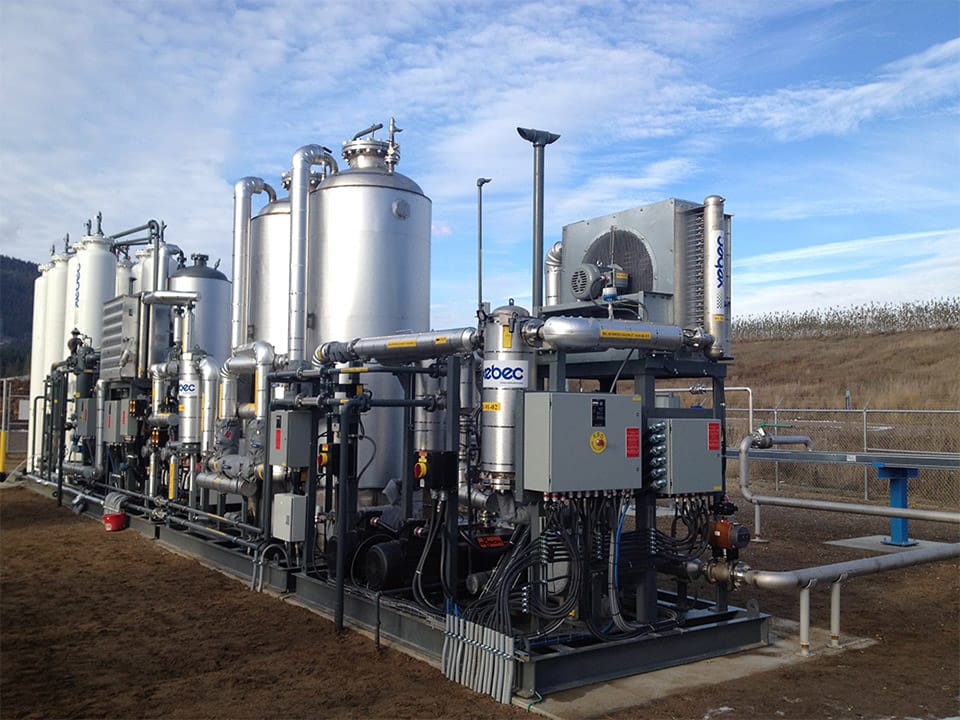Fraser Valley Biogas (Abbotsford)

Fraser Valley Biogas in Abbotsford combines anaerobic digestion and a biogas upgrading plant to produce high-quality biomethane from agricultural and food processing waste. FortisBC operates the interconnection facility at this project, monitoring gas quality and connecting this source of renewable natural gas to customers. In addition to producing renewable natural gas, this project produces nutrient rich fertilizer for use on surrounding farms and contributes to the local economy through job creation.
Annual Production: 90,000 gigajoules of renewable natural gas, which is enough to heat more than 1,000 homes for a year.
Seabreeze Dairy Farm (Delta)

Seabreeze Dairy Farm in Delta combines anaerobic digestion and a biogas upgrading plant to produce high-quality biomethane from the manure of the farm’s dairy cows along with organic waste from the Metro Vancouver area. FortisBC operates the interconnection facility at this project, monitoring gas quality and connecting this source of renewable natural gas to customers. The nutrient rich digestate left behind becomes fertilizer for growing crops to feed the cows, creating a sustainable loop of food, waste and energy
Annual Production:45,000 gigajoules (GJ) of renewable natural gas, which is enough to heat about 500 homes for a year.
Glenmore Landfill (Kelowna)

For this project, FortisBC installed a biogas upgrading plant that uses gas from the Glenmore Landfill in Kelowna. In cooperation with the City of Kelowna, this project is the second in Canada with a purification plant at a landfill capable of meeting strict pipeline standards for gas quality.
Annual Production: 45,000 gigajoules (GJ) of renewable natural gas in the first full year of operation, which is enough to heat more than 500 homes Over the project life, this annual amount is expected to double.
Dicklands Farm (Chilliwack)
FortisBC has received approval from the BC Utilities Commission for two additional renewable natural gas purchase agreement. One of the agreements will result in a new RNG production facility at Dicklands Farm in Chilliwack. The project is expected to proceed over the next two years.
Surrey Biofuel Facility (Surrey)

FortisBC is partnering with City of Surrey to produce Renewable Natural Gas at the Surrey Biofuel Facility. A closed loop organics processing operation will be in place to collect and process curbside organic waste from Surrey residents and businesses. Along with compost, biogas will also be produced by the facility which will then be captured and upgraded to RNG and used to power Surrey’s waste collection trucks as well as the City’s growing fleet of natural gas powered vehicles. The facility is expected to begin operation in late 2017, and once fully operation, will produce around 100,000 GJ, or enough to heat approximately 1,100 homes annually. Learn more about the project at www.surreybiofuel.ca.
Lulu Island Wastewater Treatment Plant (Richmond)
FortisBC has received approval from the BC Utilities Commission for two additional renewable natural gas purchase agreement. One of the agreements will result in a new RNG production facility at Lulu Island Wastewater Treatment Plant in Richmond. The project is expected to proceed over the next two years.
Salmon Arm Landfill

At the Salmon Arm Landfill, FortisBC is working with the Columbia Shuswap Regional District (CSRD) to upgrade biogas derived from landfill gas so it can be injected into the local natural gas distribution system. By owning and operating the biogas upgrading plant, FortisBC is playing an active role in the success of this project. Since it began production, the project has already won a Sustainable Community Award for capturing and using landfill gas, and provides a model for similar projects in British Columbia and across Canada.
Annual Production: Approximately 15,000 gigajoules of renewable natural gas, which is enough energy to heat more than 160 homes for a year.